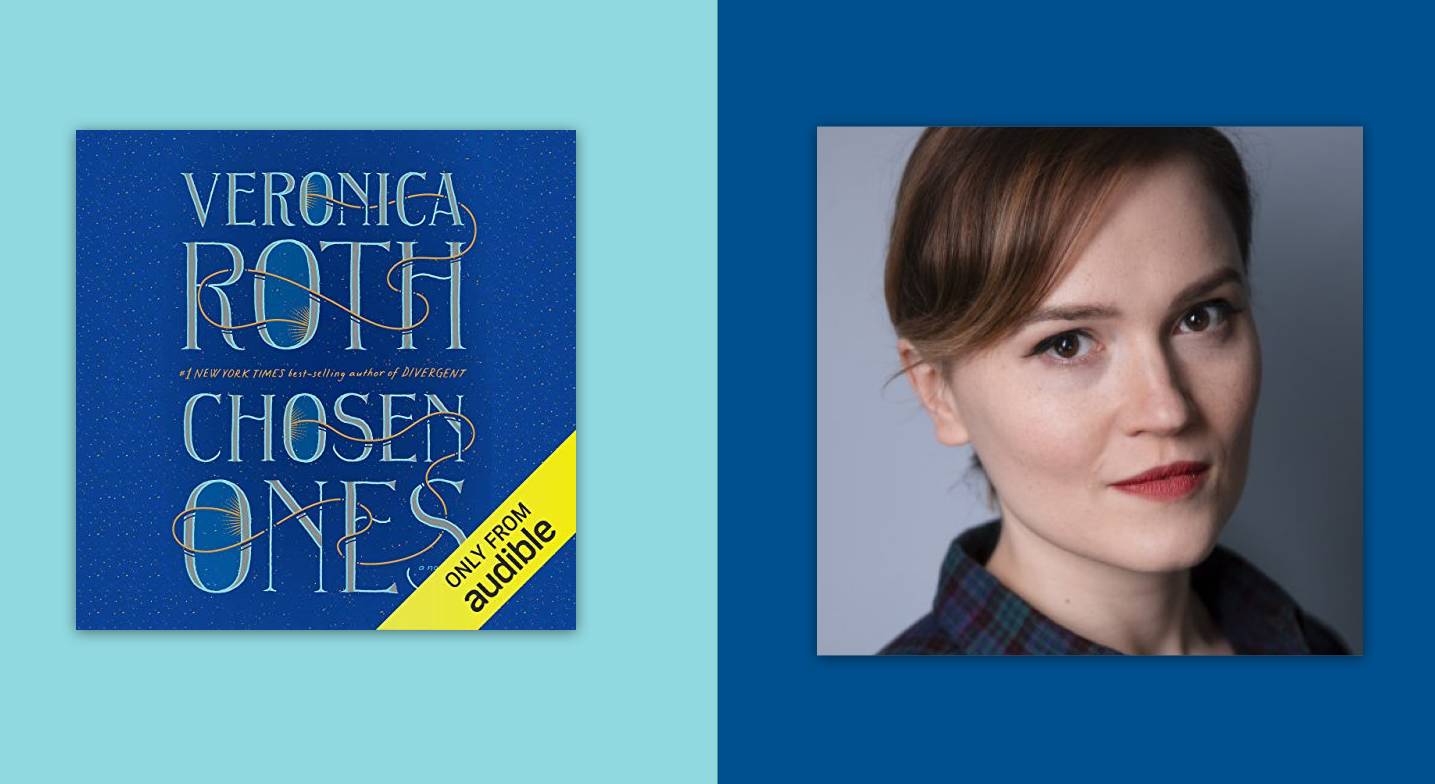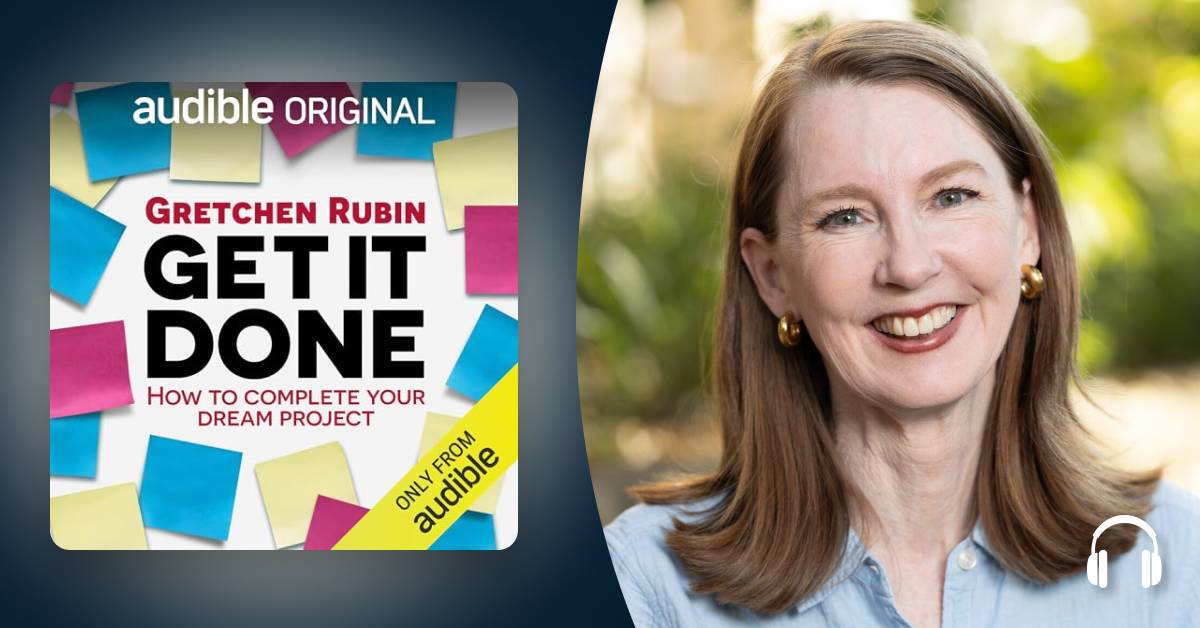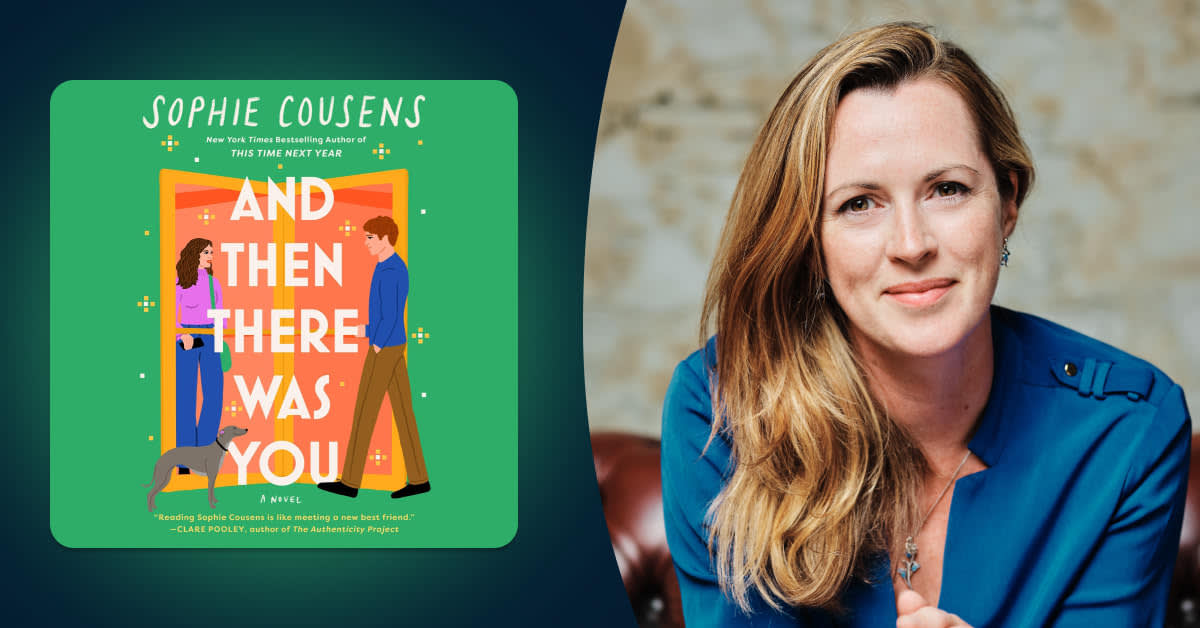Note: Text has been edited and may not match audio exactly.
Katie O’Connor: Hi, listeners. I'm Audible editor Katie O'Connor, and I'm incredibly excited to be talking with Veronica Roth, bestselling author of the YA phenomenon Divergent series, Carve the Mark duology, and the recently released Chosen Ones, about a group of adults, who 10 years earlier saved the world as teenagers, now grappling with their lingering trauma, the possibility of renewed threats, and what it means to be chosen. Hi, Veronica.
Veronica Roth: Hi.
KO: Thank you so much for speaking with me today.
VR: Yeah, thanks for having me.
KO: And congratulations on the release of Chosen Ones. So this fantasy novel is your first novel for adults. I was curious about how much your writing process did or didn't change with the audience shift going from YA to adult.
VR: You know, it's interesting, the audience shift was really not a part of my thinking about the book at all, which I guess is not that surprising. I only think about audience later, after it's written. So I approached it the way I approach any new project, which is just to be thoughtful about what it is and how to make it as nuanced and complex as I can. And yeah, I was really just focused on what this book is and how to execute it to the best of my ability.
KO: That makes sense. I was curious [about] when you started writing the book, because so many of the themes, the sexism that Sloan faces and the racism particularly that Matt encounters, feel so resonant to our now.
VR: Well, I just looked back at my email because it's always hard for me to make sense of time, and I had sent the initial synopsis of the book to my agent in December of 2017. So that's when it started. But a lot of the elements that you're noticing were kind of layered into the draft a bit later. The original rough draft with like “let's establish the rules of this contemporary fantasy world and figure out these characters in a very basic way.” And then I do most of what I think of as the real work of writing in revision. So that happened more recently, like last year, early last year.
KO: So you're saying that the early draft kind of had both the world-building and the characters? Because I was curious if you start with one versus the other when you're creating this world, if your focus is at first on Sloan and the other Chosen Ones or if it's more about the rules and the environment of this version of America.
VR: For me they kind of go hand-in-hand. And certainly my focus is mostly on Sloan. There's a lot of other characters in this book and I had to really work to flesh them out in revisions more than in an initial rough draft. I almost think of a rough draft as like a really fleshed out outline. Because when I read them I'm like, "This is just not what the book ended up being at all." But I was pretty laser focused on her and what she was like because I knew that she would be angry and unpredictable and confused and then hopefully clever. That was the hope that I had when I was writing her. So I was very focused on those qualities. And world-building—it's something I do from the beginning, but I very much only care about the elements of world-building that relate to the character directly at least in early stages. One of the things my editor was so helpful with was pushing me beyond that and to think about all the richness and complexity in the world around Sloan that might not directly impact the plot. He was able to encourage me to make it a more rich and lived-in feeling world.
KO: That sounds like a great editor.
VR: Yeah, he's great. Love him.
This is like a secret author dream of mine to participate in the audiobook of something I wrote.
KO: And the way that you constructed the book is really innovative, with articles and interviews and these top-secret files interspersed throughout. Were those also things that you went back to and peppered in in later drafts? Or were you writing it linearly at all?
VR: No, I wrote the narrative sections of the book first, and then I went back and wrote the interstitials, which is what we're calling all of those fake documents. The reason that they felt necessary is that you can learn a little bit about what Sloan and her friends went through to save the world 10 years before the start of the book, but you don't really understand the extent of what they did and what they went through and how they bonded unless you have all of this kind of backstory. But I didn't want to reveal the backstory through flashbacks because I find those to be pretty tricky to work with. And they kind of feel like, "Oh, why am I putting up with this when I could be moving forward through the narrative?"
So the interstitials were a way to reveal what happened. But then also they have an effect on the narrative because Sloan, the character, has submitted a freedom of information act request for all those files. So she's learning about how the government perceived her and how they made use of her as an adult. She is kind of having a rude awakening about exactly how she was regarded and how she was treated by the government. So I wrote the narrative, I wrote the interstitials, and then I had to go back and rewrite portions of the narrative to reflect the interstitial. It's very much a back and forth.
KO: That makes sense. I was actually thinking about how in Divergent you wrote Tris from the first person, and we really get inside her head. And Sloan on the other hand is in third person, but in some of these interstitials we are getting slight first-person moments from her when she's recounting memories as part of these files. But keeping Sloan in the third person felt really authentic because of her struggles in that she feels like no one truly knows her. She has secrets, she has walls up even for those closest to her. So I thought that the third person separation helped create additional space that felt very much in line with her character. And I was wondering if there were other reasons behind that choice or is there something that appeals to you in using third person versus first person?
VR: I love your observation about it because I certainly think that that was a big part of it. I wrote one character in third person in the Carve the Mark series, Akos, and it was for the same reasons that you listed, which is that he's a more guarded and wary character, and when you read in third person, even if it's close third person, you feel a little more separate from that character. But otherwise, to be honest, Divergent and even the first-person parts of Carve the Mark were the exception for me. I had always written in third person up until that point. And it just felt right for Divergent for you to be in her head. And then for Carve the Mark to be in Cyra's head. But I think third person is kind of my default. I always start every project in that voice, and if it works I keep it, and if it doesn't then I change it. But I find it to be more challenging at the outset because you're not literally in the character's head, which makes you feel like you know them a little better from the beginning. Third person is harder at first and then it's easier over time, whereas first person is the opposite.
KO: Yeah. And I'd have to imagine, too, especially as you're sort of jumping around, including different bits of information or other people's points of view and then having to adopt their voice to that that would make it challenging as well.
VR: Yes, that would be quite a challenge. If it had felt right, I would have done it, but it probably would've taken just a little extra effort to get into her head. Plus I didn't want it to feel like we were restricted to her perception, even though in the third person, it's so close, so we mostly are. There's just like that distance was important for her for the reasons that you said.
KO: Yeah. So you're a part of the audio recording, which is cool.
VR: Yeah.
KO: And that's another thing about the way that you've written this. It lends itself so well to the audio format, it's just such a cool listening experience, the way that they've redacted names in introducing the top-secret files, it's a lot of fun. Plus, with Dakota Fanning at the helm, it just sounds amazing. What was it like getting to be a part of the audio?
VR: Well, this is like a secret author dream of mine to participate in the audiobook of something I wrote.
KO: That's amazing.
VR: So I don't have what I would consider to be a really great audio voice. Some people you just want to listen to for hours. I was kind of dubious that it would ever happen for me. But luckily this book created that opportunity because it has so many short sections.
KO: Yeah, it's a real treat for listeners getting to hear so many different great voices on it.
VR: Yeah. And my favorite audiobooks of late have been full cast, like the Illuminae series by Jay Kristoff and Amie Kaufman …
KO: I love that series!
...as time goes on, I'll discover more what kind of writer I am apart from Divergent, and my readers will discover that with me.
VR: Yeah. And Lincoln in the Bardo by George Saunders is just an achievement in the audiobook genre.
KO: Really. And this is a side note, but my former boss is in that audio even.
VR: Really? Oh my God, that's so great. Yeah, there's so many.
KO: Yeah, they're both incredible. So just before we got on the phone, I really wanted to see how your book looks in print. I live down the street from my childhood bookstore and I was like, "Are they doing curbside? I want to go get a physical copy too so that I can look at how they did it physically versus just enjoying the audio of it."
VR: Yeah, it's pretty cool. It was tricky to structure everything like a government document, but I think they did a great job.
KO: Yeah, I'm excited to see it. So you've obviously had mega success as an author, and so many would struggle or hesitate to put out more work after that. How do you deal with that pressure and continue to create stories that we all get to enjoy?
VR: I think really what it comes down to for me is that I've always been passionate about the work itself. I remember reading something in, I think it was, Yes, Please, by Amy Pohler, about how the most successful people she knows in the creative industry, any kind of creative industry, are laser-focused on the work itself and not the results. And I always felt that way about writing. I would be doing it even if no one was paying me and how fortunate I am that people do pay me to do it so that I can have a house and keep the lights on and all that.
KO: Pay bills.
VR: Yeah! And so I thought about taking a lot of time after the Divergent series but I just wasn't happy that way. So that's kind of how I cope with the pressure, which is that it is hard to deal with some of the repercussions. People just, they want to read Divergent 2.0, but that's not what the follow-ups have been, which is fine. Sometimes that's a little tricky to deal with emotionally. But mostly I just feel lucky to be able to continue to do the work. And I also feel that as time goes on, I'll discover more what kind of writer I am apart from Divergent, and my readers will discover that with me. That's kind of how I'm thinking about it moving forward.
KO: I love that. That also resonates for me. I always re-listen to Big Magic by Elizabeth Gilbert, and it's a similar theme of just you're creating because you love to create. We're all very grateful that you're still doing it and will continue to give us great things to enjoy.
VR: Well, thanks.
KO: Thank you, Veronica, and thank you listeners. To listen to Chosen Ones, you can visit Audible.com.







